Process
"I had to take a deep breath and put my embarrassment aside. When she showed up for our first appointment. . her warmth, her calm disposition, and her non-judgmental nature put me at ease instantly." – A.M.
In General:
For Stuff
Integrated organizing and coaching—This process works well for stuff (sort, purge, assign home, add structure, maintain). But the bigger work of figuring out how this process works for each client involves a process that transfers the focus from the stuff to the person. This is where my clients stand out: they wish to go deeper – to consider how their thoughts, feelings, beliefs, behaviors, life experience, and ADHD (for those with ADHD) impact their disorganization. Approached in this holistic way, they are primed to experience essential insights that foster the life-changing transformation they seek.
For Life Challenges
Stand-alone coaching—We aren’t handling stuff. We are having conversations. We will talk about your values and needs, your strengths, your limitations, and your support systems. Where applicable we will talk about about Executive Function challenges (getting started and finishing, emotional regulation, feeling time, remembering, prioritizing) that make life difficult. Our goal is to create a life that fits you.
The First Phone Call
There is a free initial phone conversation of 30 minutes.
Clients talk about why they are calling and what their challenge is. I explain my style, philosophy, and logistics. .
If we decide to take the next step, we set up our first meeting (in-person or over Zoom). I send the client some coaching questions and ask that they are filled out and returned to me before our first session.
The First Session
The first session for stand-alone coaching involves a one-hour meeting over Zoom where we start to create our coaching partnership.
The first session for integrated organizing and coaching involves a three-hour block of time. The format of our sessions is flexible, but we’ll generally coach for the first 30 minutes, then transition to organizing for the remaining 2.5 hours. Each session focuses on whatever your goals are for the day, so every session will have its own purpose and flow. At the end of the first visit, if client and organizer feel that there is a good fit, a next date is set.
A Typical Integrated Organizing Coaching Session:

We talk about what has been learned since our last session….what’s working, what do we need to continue to experiment with, what’s being discovered about time and motivation. What are the goals for the day.
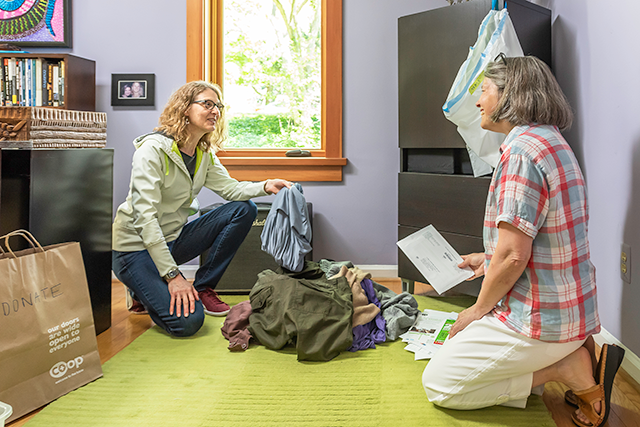
We work side by side as a team. We haul things out, open things up, spread stuff out, and make lots of piles. Along the way, we may take time out to look at difficulties….i.e., decision making, overwhelm.
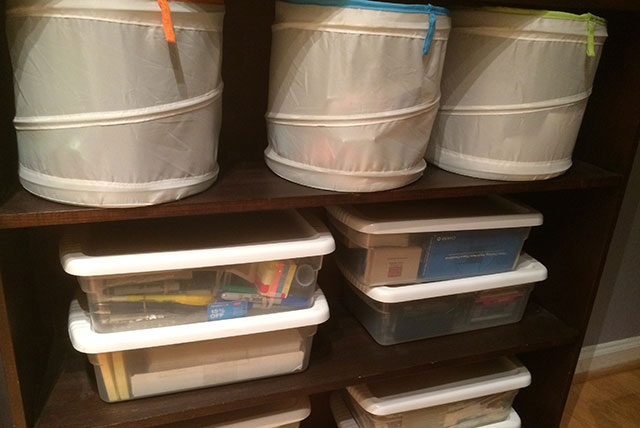
We end by making sure that all the things that we have touched are dealt with…recycling is taken out, donations are in the car, items are in their homes.
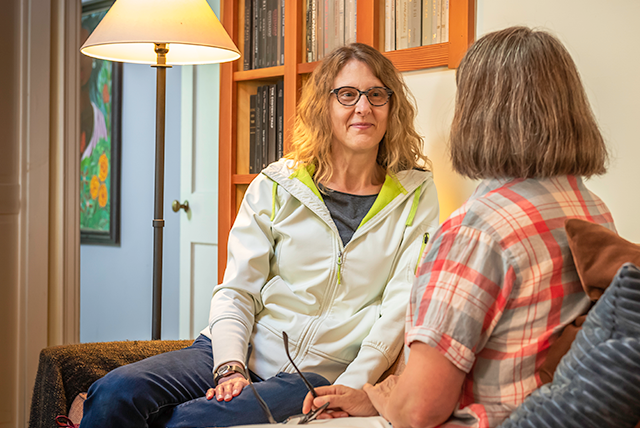
We discuss what the client wants to experiment with before our next session. Then we set a next date.
Services
- Stand-alone coaching (virtual)
- Integrated coaching and hands-on organizing (in-person or virtual)
Typical length of time working with Organizer Coach
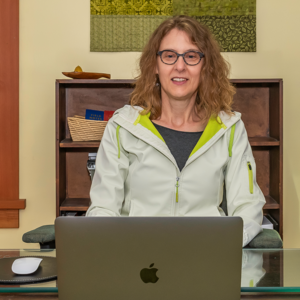
For coaching
It is good to count on three months of weekly meetings. At that point, we take a look at where you are in your journey and what makes sense to do next.
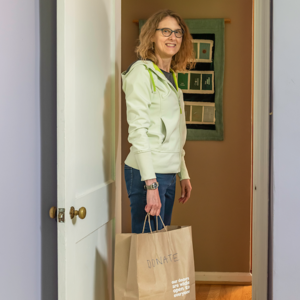
For integrated coaching and organizing
We learn about your goals, and after a session or two of working together, we have a better sense of what can happen in our partnership.
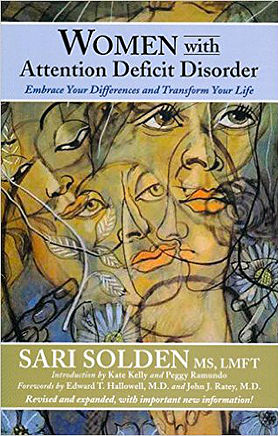
Sari Solden, MS, psychotherapist and the author of Women With ADD and Journeys Through ADDulthood.
"I am a psychotherapist for adults with ADHD who often struggle with chronic and severe disorganization. I am currently referring all my clients who need help in this area, to Susan Hunsberger, an organizer specially trained to help with these challenges. For these individuals, working with an organizer can be fraught with shame and embarrassment as well as feelings of being judged or misunderstood. They often come away from a session feeling drained, frustrated, or exhausted. So I have been delighted with the positive response of my clients to work with Susan! Susan is truly gifted at working with people with chronic disorganization. She understands their relationship to their “stuff” and respects their challenges as well as their strengths. She does not offer rigid or formulaic solutions, nor does she impose her ideas in a one size fits all way. Instead, she is a creative problem solver, working in a collaborative manner. She takes the lead from her clients, honoring the particular way an individual needs things to work for them."